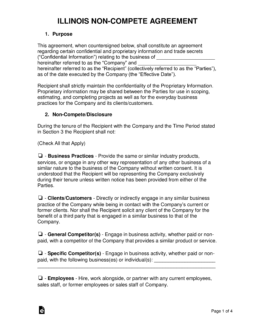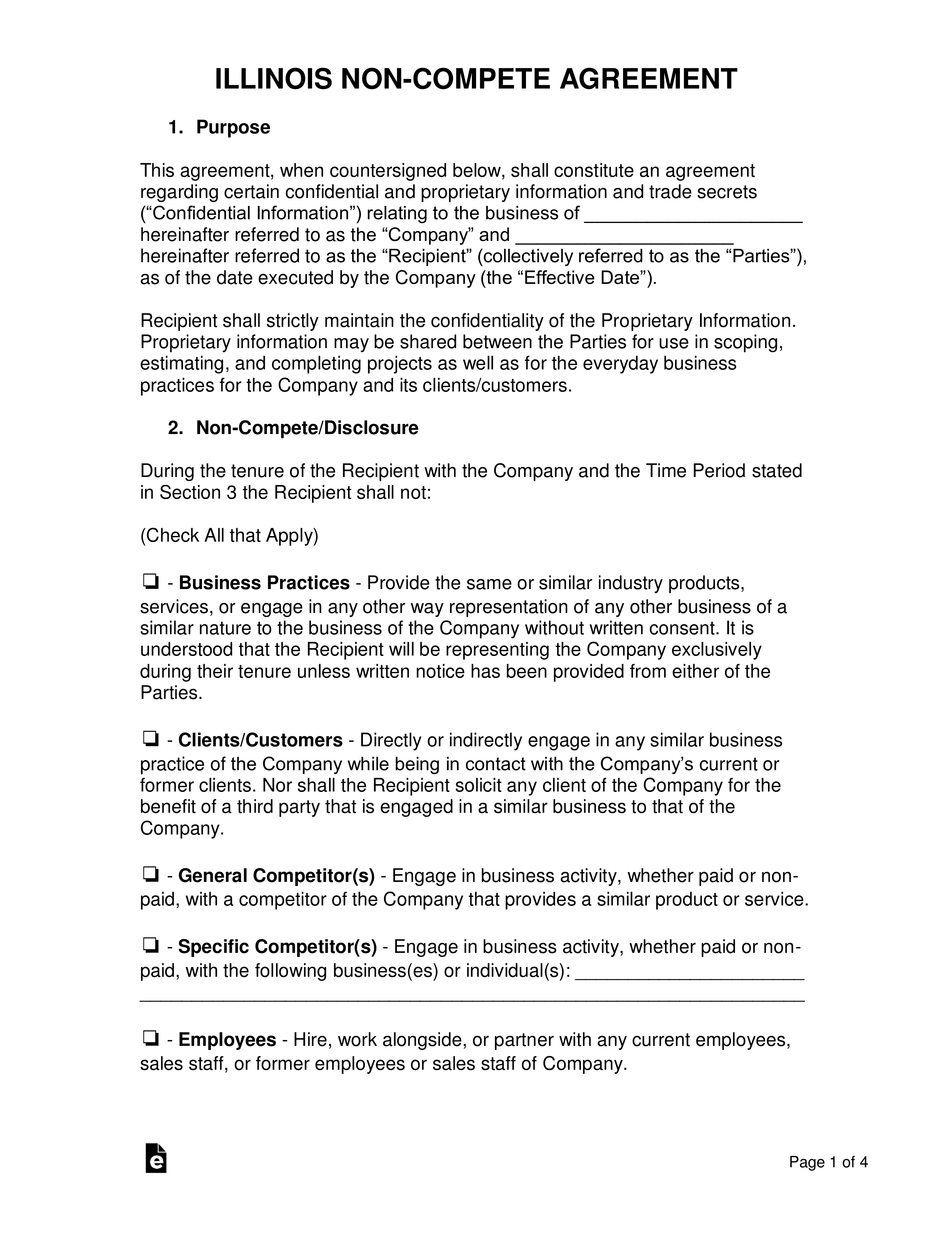Updated February 29, 2024
An Illinois non-compete agreement is a restrictive measure taken by employers to prohibit them from working in a similar field after the termination of employment. The agreement is only valid for employees that make $75,000 annually or more and must specify a timeframe and geographical area. In addition, the employee must have worked for the employer for a period of at least 2 years or have financial benefits. (adequate consideration).
Laws
Legally Enforceable?
Yes, a non-compete is legally enforceable in Illinois if the employee:
- Earns $75,000. Must earn $75,000 annually or more[1];
- 2 years. Must work for the employer for at least 2 years or have received professional or financial benefits[2];
- Legitimate business interest. Must have a legitimate business interest[3];
- Reasonable. Must be reasonable under the “three-component test“;
- Attorney consultation. Employer must advise the employee, in writing, that they should consult an attorney before entering into an agreement[4]; and
- 14-day period. The employee must receive a non-compete and have the chance to review it for at least 14 days.[4]
Three-Component Test
The Illinois Supreme Court has determined the three-component test for determining if a non-compete is reasonable:[3]
- Protect the legitimate business. The restraint was necessary to protect the legitimate interest of the promises;
- Hardship on the general public. The restraint did not impose a hardship on the promisor or the public; and
- Restraint is reasonable. The extent or scope of the restraint was otherwise reasonable.
Continued Employment
Continued employment alone does not constitute sufficient consideration.[5]
Although, the promise of continued employment for a period of at least 2 years is determined to be valid consideration.[6]
Maximum Term
5 years is considered reasonable under the Supreme Court. There is no State statute.[7][8]
Blue Penciling (reformation)
A court may reform or sever provisions of a covenant not to compete rather than hold the entire document unenforceable. Factors that come into such a decision are determined by the fairness of the restraints and the good faith effort to protect the legitimate business interest of the employer.[9]
“Non-Compete” Definition
“Covenant not to compete” means an agreement between an employer and an employee that is entered into after the effective date of this amendatory Act of the 102nd General Assembly that restricts the employee from performing:[2]
- Any work for another employer for a specified period of time;
- Any work in a specified geographical area; or
- Work for another employer that is similar to employee’s work for the employer included as a party to the agreement.


